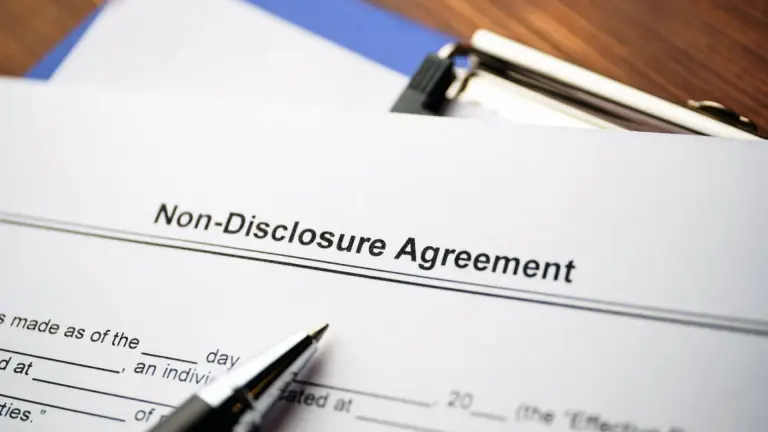Non-disclosure agreements (NDA) are designed to protect your business’s intellectual property. When you operate a business, you likely have some sort of business secret that lets you separate yourself from your competitors. These can relate to your business’s operating process, your product, or just your brand. These can take the form of trade secrets, copyrights, patents, or trademarks.
NDAs are for when you need to share these business secrets but also need who you’re sharing them with to keep them secret. When someone signs an NDA, they agree to never reveal the business secret, or at least not speak of it until a certain time. But NDAs aren’t a one-size fits all solution. There are instances where someone cannot sign an NDA, so you either have to change your plans so you don’t need this person anymore or need another way to ensure their secrecy.
If you don’t know when someone cannot sign an NDA, the entrepreneurial and corporate law attorneys at Tressler & Associates can help.
Who Can’t Sign an NDA?
When it comes to types of people who can’t sign NDAs, that are a few groups who make up a large portion of the population:
- Minors
- People with compromised mental faculties
- Intoxicated individuals
- Someone who already knows the contents of the NDA
Minors
A minor is anyone under the age of 18 years old. They are not adults in the eyes of the law and do not have the capacity to understand and sign binding contracts.
While it’s not technically illegal for a minor to sign on a dotted line, no contract they sign is legal and is null and void. It cannot be used against them even after they eventually turn 18. This means that if a child gets a hold of or hears of your business’s secret through legal means, they can’t be made to keep it a secret.
A Person with Compromised Mental Faculties
Someone with compromised mental faculties would be considered someone who cannot make decisions for themselves. This can be due to mental disabilities, traumatic brain injury, or being in a coma. They cannot safely make decisions for themselves so they also cannot sign a contract. If they have a conservatorship, that person may be able to sign for them in certain situations.
Intoxicated Individuals
Anyone under the influence of alcohol or drugs cannot sign legally binding contracts. This means it is important to verify the mental condition of whoever you want to sign an NDA. If they can prove that they were under the influence when they signed the NDA, it can become null and void, while they still know your business’s secret(s).
Informed or Potentially Informed Persons
A person cannot be forced to sign an NDA for information they already know. This situation occurs when they have learned your business’s secrets:
- Prior to being presented with the NDA
- From a third party on a non-confidential basis
- From reverse engineering a product or device
If you accidentally reveal important information to someone before they sign an NDA, any NDA they sign to keep that specific information secret is null and void. You can still have them sign NDAs for related information they don’t know yet.
For example, if they find out about a new product you have, you can have them sign an NDA about the contents or process of making the product. This way if they explain what they already knew, they’re likely to break the NDA for what they found out.
This same legal logic also applies to anything in the public domain. While someone may not know the specifics of what is in the public domain, they could have learned about it before they were asked to sign an NDA. They cannot sign an NDA to keep secret what they–or anyone–could know before they were shown the NDA.
Contact Tressler & Associates When Someone Can’t Sign Your NDA
Tressler & Associates can help you write airtight NDAs and other business documents. When someone can’t sign an NDA, there are other documents that can make them legally obligated to protect your business’s intellectual property. That’s just one of the solutions we can offer to help your business. For more information and a consultation, contact us today.



